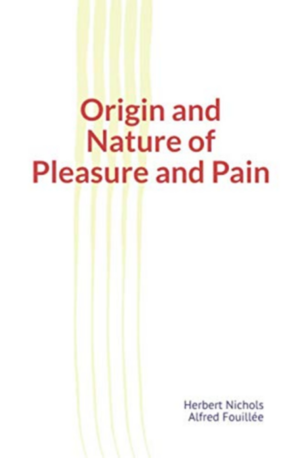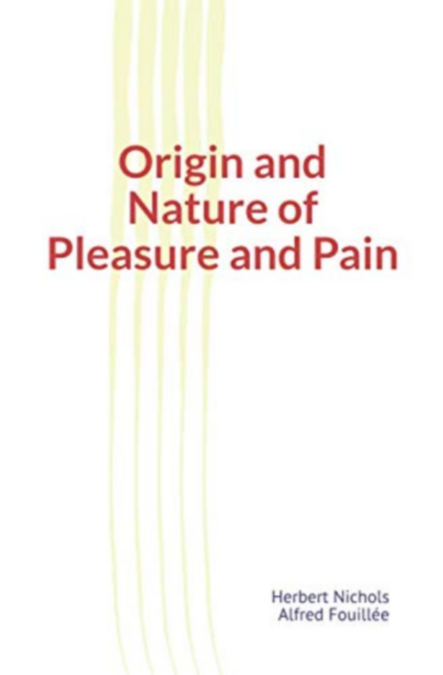
- Retrait gratuit dans votre magasin Club
- 7.000.000 titres dans notre catalogue
- Payer en toute sécurité
- Toujours un magasin près de chez vous
- Retrait gratuit dans votre magasin Club
- 7.000.0000 titres dans notre catalogue
- Payer en toute sécurité
- Toujours un magasin près de chez vous
Description
“Nearly all the greatest thinkers from the beginning of philosophy have grappled with the subject, yet we are inclined to believe that, from the first, no subject has been more profoundly misunderstood. Whatever the standpoint, whether philosophical or physiological, upon one point only, perhaps, has there always been substantially universal agreement; namely, that pleasure and pain are in some way direct and complementary expressions of the general welfare of the individual. From Plato and Aristotle down through Descartes, Leibnitz, Hobbes, the idea, at base, has ever been the same: The experience, the judgment, the attainment of a perfect or imperfect life; the perfect or imperfect exercise of a faculty; the furtherance or hindrance of some activity; the rise or fall of some vital function, force, or energy. Everywhere pleasure and pain have been looked upon as complementary terms of a single phenomenon, and as the very essence of expression of the rise and fall of our inmost existence...”
Spécifications
Parties prenantes
- Auteur(s) :
- Editeur:
Contenu
- Langue:
- Anglais
Caractéristiques
- EAN:
- 9782366597615
- Date de parution :
- 04-09-19
- Format:
- Ebook
- Protection digitale:
- Digital watermarking
- Format numérique:
- ePub

Les avis
Nous publions uniquement les avis qui respectent les conditions requises. Consultez nos conditions pour les avis.






